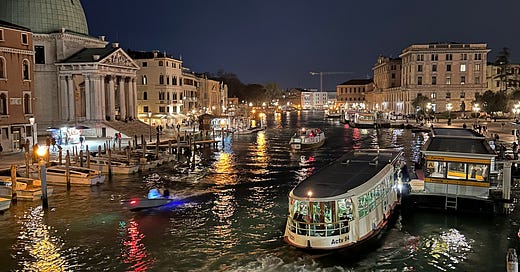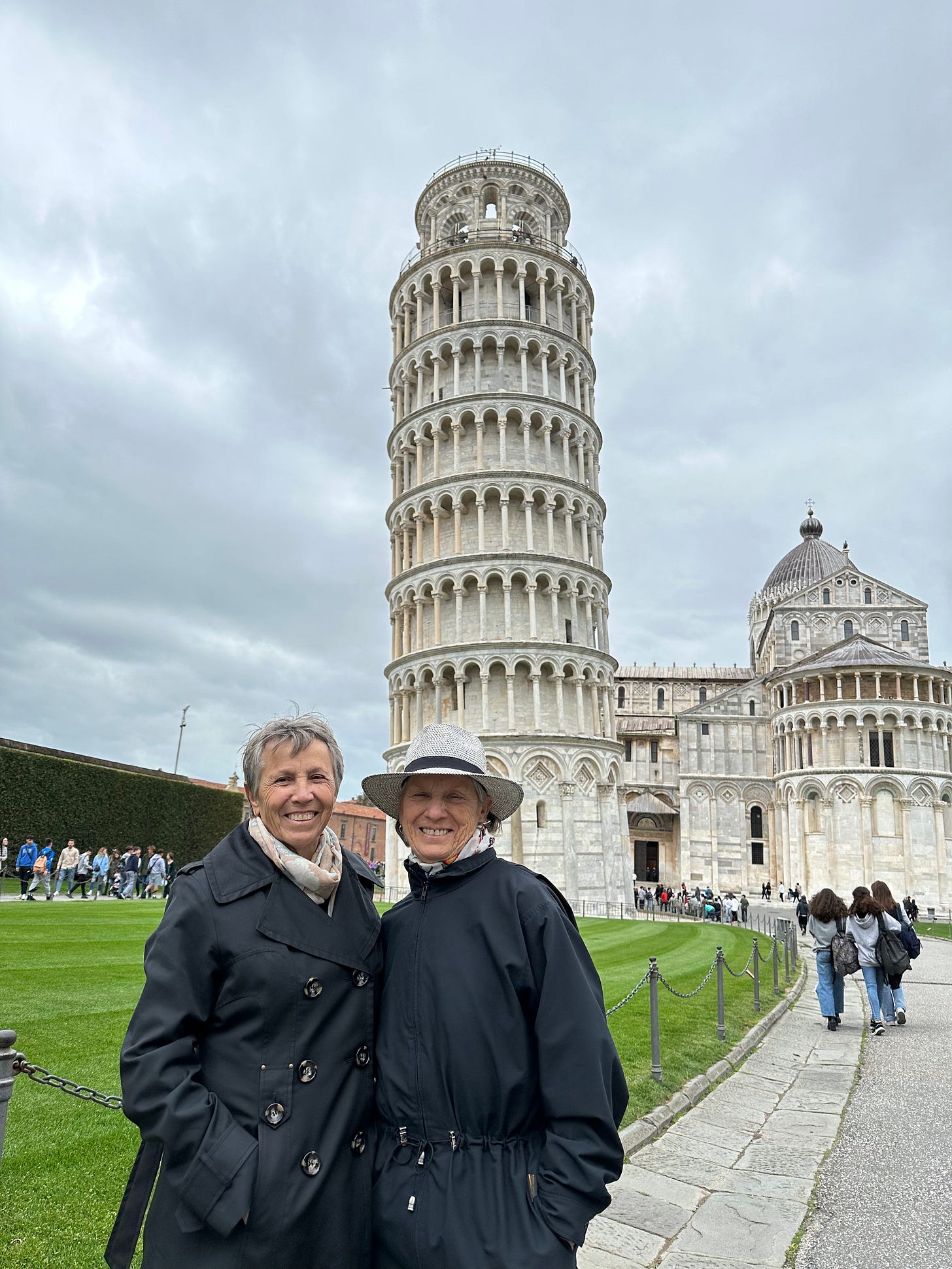Back in April, we took an 11-day trip to Italy. No, this post is not about that vacation…though it was wonderful. It is instead about republics and how they may be like marriages.
Republics
If you have been on this journey with me for a long time, you know that I forgot a lot of what I learned in high school history and civics classes. I actually had to research the definition of “republics”1 for a prior post. And it was during our vacation that I learned that Italy really did not become the country we call Italy until 18612, and was not the republic we know today until 1946. This surprised me! When I think of Europe I think of “longevity” … lots of countries that have been around for a long time. Yes, of course, there was the reunification of Germany and the dissolution of the Soviet Union both of which occurred in my lifetime. But somehow the countries across the pond seemed older than the United States.
And I suppose I define a country not simply by geographical boundaries but by its political system. As it relates to Portugal…of course it has been around as a “country” much longer than the US. But its current political system is very, very young … i.e. less than 50 which seems very young to me. Following the Carnation Revolution on 25 April 1974 the country instituted a Parliamentary Republic. You may recall its constitution was written in 1976.
Marriages
This brings me to marriages. (I realize you are confused, that’s okay. Since I tend to think about more weighty issues, I spend much of my day confused. But hang in there…I promise I have a point!) Depending on who you believe there are some number of “stages of a marriage”. The University of Florida says there are three:
1) romantic love,
2) disillusionment and distraction, and
3) dissolution, adjustment with resignation, or adjustment with contentment —Larson, 2003
Others suggest there are five stages or seven stages. And, of course, there is the famous 7-year itch!
Regardless of which theory you ascribe to, they all have a common theme. If you want to maintain a happy marriage you must take care of it … nurture it … work for it.
Republics and Marriages
This brings me to what I have been thinking about. America is one of the oldest republics in the world. And like any marriage, it has had its challenges. There was, of course, the civil war. I do remember learning about this in school. And I do recall learning that The South rose up in large part to “maintain their way of life” which of course meant utilizing slave labor.3
I didn’t learn about the insurrectionists (some of whom were members of Congress) that attempted to overthrow the government in the 1940s until I listened to Rachel Maddow’s podcast Ultra. The parallels with recent efforts of Christian nationists I found concerning.4 At the same time, I find some comfort in the fact that today’s US Justice Department, unlike that in the ‘40s, has been able to convict some of the January 6th insurrectionists of seditious conspiracy.
But closer to home, i.e. my new home, I can’t help but compare Carnation Day (25 Abril) celebrations in Portugal to the 4th of July celebrations in the States. I am sure there are some smaller towns that have parades in the States. And there may be fireworks…but I dare to say, for many Americans, it is an opportunity for a family picnic in the backyard more than a celebration of the birth of a great nation. If you want to know what Portugal’s independence day is like, read this post by another blogger.
This brings us to last week when former President Trump appeared in a Miami courtroom to hear the 37 Felony counts on which he has been indicted. We don’t know if this case will go to trial. We don’t know if he will be found guilty. We don’t know what punishment, if any, will be handed down. (Agnew, Nixon, and so many other senior officials, e.g. General David Petraeus, seem to be handled differently by our legal system. Rich and powerful white men. I wrote about the parallels I found in Portugal here.) There is a lot we don’t know. But the events of the past 6 years have reminded us that a republic, like a marriage, needs to be cared for. It cannot be taken for granted … or it will be taken away.
Next week, back to all things Portugal! There’s a lot going on in June!!
Até lá, e por favor, abrace o seu parceiro, tchau…
Nanc
Definition from Encyclopedia Britannica: a form of government in which a state is ruled by representatives of the citizen body. Modern republics are founded on the idea that sovereignty rests with the people, though who is included and excluded from the category of the people has varied across history.
Before 1848, the country we now call Italy was a group of separate “states”/”regions”. But such small territories could not defend themselves against much larger, stronger enemies (e.g. Austria). With the Pope’s support, these territories unified into what is today Italy. Of course, it didn’t happen overnight. There was a little fellow named Napolean, the Crimean War, the Second Italian War for Independence, the Third Italian War for Independence, etc. There was also WWII, Mussolini, and the birth of the Italian Republic on 10 June 1946.
Of course, I went to school in PA and Ron DeSantis wasn’t governor.







Thanks for another insightful post about your lives and experiences and observations here in Portugal--and Italy! A fascinating comparison between republics and the importance of not only remembrance/celebration, but also of ongoing struggle for continued progress as we see here. Of course, Portugal as a "country" is among the oldest and it was fun to see the flyover by British RAF jets and Portuguese fighters together here in Lisbon yesterday to celebrate the anniversary of the world's oldest treaty, that between Britain and Portugal at 650 years! And, thanks so much for sharing my own blog post about this year's Carnation Revolution celebrations here! It was indeed an inspiring experience. 25 abril sempre!
Completely agree about taking care of what you have! Glad you had a great vaca in Italy. It is one of my favorite places on the planet.